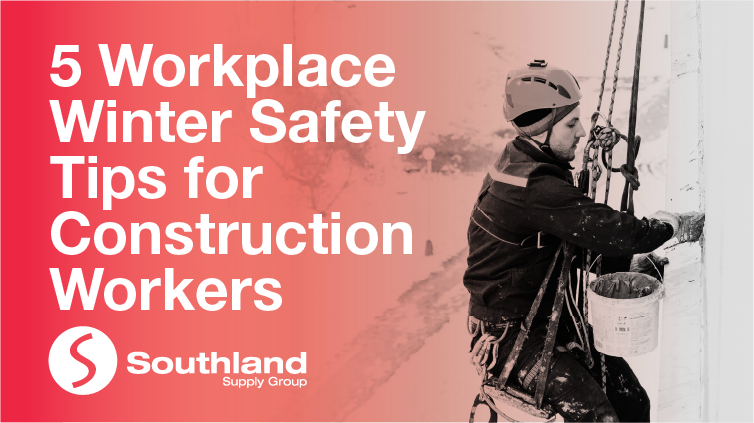
Construction sites are by their very nature, full of safety hazards. During winter however, workers can be exposed to extreme cold, high winds, and icy rain, in addition to the normal risks of the job, and employers and managers need to ensure their staff are protected.
Working in winter can increase the likelihood of slips and trips taking place, while exposure to cold temperatures can lead to serious complications such as frostbite or hypothermia. Loss of feeling in fingers and hands can also lead to reduced dexterity, and injuries as a result.
Keep an eye on the weather
Keeping an eye on the forecast for the day is the first step in keeping your workers safe and warm. Where possible, schedule work around the weather to reduce the amount of time in the worst elements, and even when rescheduling isn’t possible, just being aware of the dangers can help reduce injuries.
Require proper safety gear
As an employer, make sure that all workers are wearing all necessary personal protective equipment (PPE) when working in cold weather.
Hard hats are often a requirement on site to protect against falling objects. Using liners in hard hats in cold weather, will help keep the head warm and prevent heat from escaping.
Safety gloves add a layer of protection against the cold and should still allow enough manual dexterity to work with tools and materials. Remind workers to always keep their gloves on, especially when climbing ladders, scaffolding, or getting onto construction equipment. Frostbite can occur immediately if workers touch extremely cold metal with bare hands.
It is also recommended that staff wear waterproof safety boots with non-slip soles and extra socks to protect against the cold.
Safety goggles and safety glasses can be treated with anti-fog spray to prevent vision from being obstructed.
Emergency and First Aid Kits
Employers should have an emergency and first aid kits in place at strategic locations on the construction site so they are easily accessible in case of accidents. First aid kits should also contain flashlights as power outages are possible in severe winter weather.
Prepare for slips, trips, and falls
Slips and falls on icy and wet surfaces is a constant danger in the winter months. It is also one of the most common ways of seriously injuring yourself at work.
It is important to always clear snow and ice from walking surfaces after a snowfall or a heavy frost. Wearing quality footwear with good tread, taking short steps and walking at a slower pace are all ways to reduce the chance of a slip or fall.
Provide a warm break area
Outside work is often necessary when working in the construction industry, but workers also need a place to take a break from the elements and warm themselves. It may be a heated trailer or a tent with portable heaters.
Construction workers have a dangerous job, especially during the winter season. Make sure your staff is properly prepared for the extreme temperatures, snow and ice this winter. For more information and a complete range of personal protective equipment, visit our website at https://www.southland.com.au/
